How To Improve Memory and Supercharge Your Brain Power
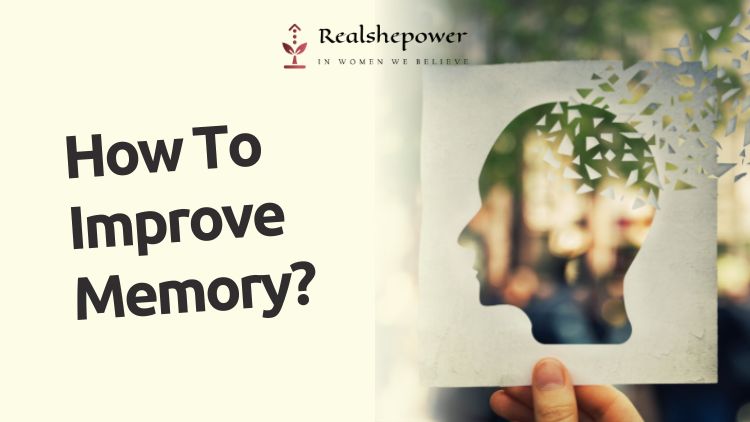

Memory, the fascinating and intricate process by which our brains store and retrieve information, is an essential aspect of our daily lives. Whether it’s recalling vital facts for an exam, remembering appointments, or simply preserving cherished memories, a robust memory is crucial for success and happiness. Fortunately, there are numerous techniques and habits you can adopt to supercharge your memory and enhance your brain power. So, let’s dive into the world of memory improvement and uncover the secrets to optimizing your cognitive abilities.
Table of Contents
How To Improve Memory: Techniques and Strategies
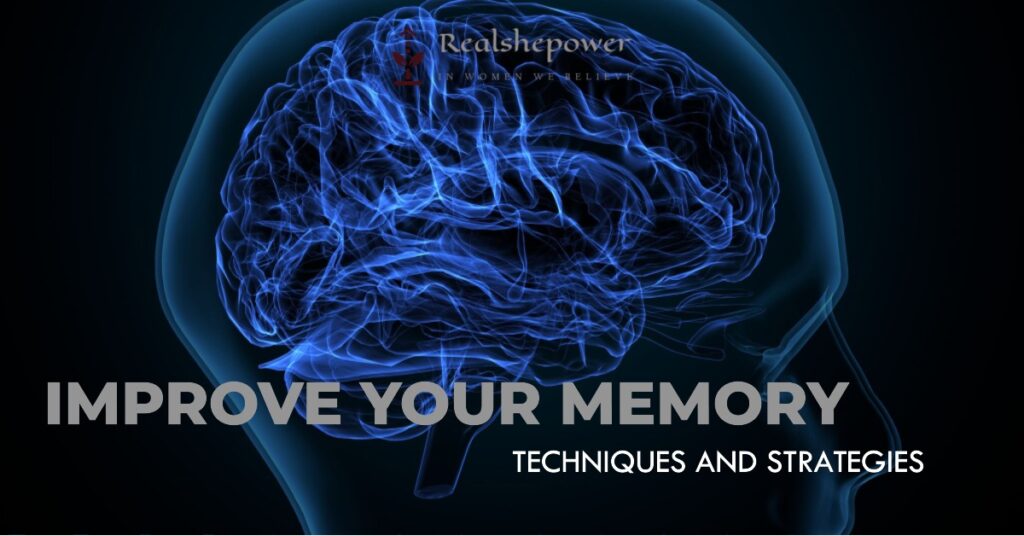
1. Embrace the Power of Association
The human mind thrives on connections and associations. By linking new information with familiar concepts, you can dramatically improve your memory recall. Here’s how:
- Create vivid mental images: Visualize the information you want to remember in a quirky and memorable way. For instance, if you’re trying to recall a grocery list, imagine a dancing carrot or a flying loaf of bread.
- Mnemonic devices: Utilize acronyms, rhymes, or songs to remember complex information. For example, ROY G. BIV helps recall the colors of the rainbow (Red, Orange, Yellow, Green, Blue, Indigo, Violet).
- Mind mapping: Use diagrams or flowcharts to visually represent relationships between ideas or concepts. This technique aids in organizing information and makes it easier to recall.
2. Engage Your Senses
Our senses play a crucial role in memory formation. By engaging multiple senses during the learning process, you can strengthen your memory pathways. Consider these techniques:
- Multi-sensory learning: Read aloud, draw diagrams, or engage in hands-on activities while studying. The more senses you involve, the stronger the memory connections become.
- Aromatherapy: Certain scents, such as rosemary or peppermint, have been shown to enhance memory. Try incorporating these fragrances into your study or work environment.
3. Get Moving: Exercise for a Sharper Mind
Physical exercise not only benefits your body but also has a profound impact on your brain health and memory. Here’s why:
- Increased oxygen flow: Exercise boosts blood circulation, delivering vital oxygen and nutrients to your brain, which stimulates the growth of new neurons and enhances cognitive function.
- Stress reduction: Physical activity reduces stress hormones and promotes the release of endorphins, which are natural mood boosters. A calmer mind is better able to focus and retain information.
- Neuroplasticity promotion: Regular exercise promotes neuroplasticity, the brain’s ability to reorganize and adapt. This facilitates the formation of new neural connections and strengthens memory pathways.
4. Utilize the Power of Chunking
Chunking is the process of breaking down information into smaller, more manageable chunks. By organizing and grouping related pieces of information together, you can enhance memory retention and recall. Here’s how to do it:
- Phone numbers: Instead of trying to remember a long string of digits, break the number into smaller chunks. For example, 555-123-4567 can be remembered as 555 (area code) – 123 (first three digits) – 4567 (last four digits).
- Lists: When faced with a lengthy list, group items based on common characteristics or categories. For instance, if you need to remember a grocery list, mentally organize items into categories like fruits, vegetables, dairy, and pantry items.
5. Practice Active Recall
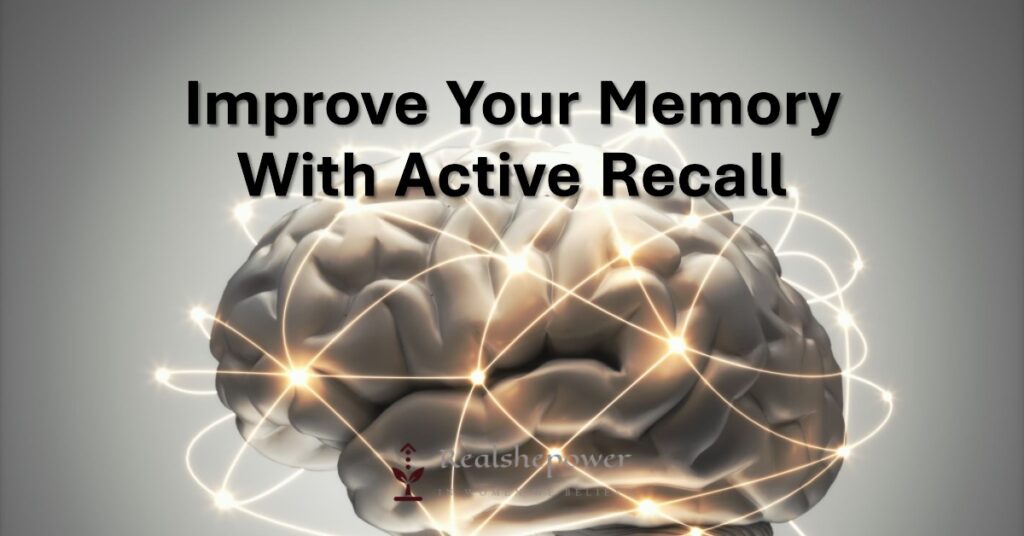
Active recall is a powerful technique that involves actively retrieving information from memory. This method strengthens memory pathways and improves long-term retention. Here’s how to incorporate active recall into your study or learning routine:
- Flashcards: Create flashcards with questions or prompts on one side and the corresponding answers or information on the other side. Test yourself by trying to recall the information before flipping the card.
- Practice quizzes: Engage in regular practice quizzes or self-assessments to actively retrieve information from memory. This helps reinforce learning and enhances memory recall.
6. Get Sufficient Sleep
Adequate sleep is vital for memory consolidation and optimal cognitive function. During sleep, the brain processes and solidifies newly acquired information, strengthening memory traces. Follow these tips for a good night’s sleep:
- Establish a routine: Maintain a consistent sleep schedule, going to bed and waking up at the same time each day.
- Create a sleep-friendly environment: Make sure your bedroom is cool, dark, and quiet. Consider using earplugs, eye masks, or white noise machines to block out distractions.
- Limit screen time before bed: The blue light emitted by electronic devices can interfere with sleep. Avoid using screens at least an hour before bedtime.
7. Engage in Mindfulness and Meditation
Mindfulness and meditation practices have been shown to improve memory and attention span. These techniques promote relaxation, reduce stress, and enhance overall brain function. Here’s how to incorporate mindfulness into your daily routine:
- Mindful breathing: Set aside a few minutes each day to focus on your breath. Pay attention to the sensation of each inhalation and exhalation, bringing your mind back to the present moment whenever it wanders.
- Meditation apps: Explore smartphone apps that offer guided meditations or mindfulness exercises. These can help you develop a regular meditation practice and reap the benefits of improved memory and cognitive function.
8. Challenge Your Brain
Keep your brain sharp and active by engaging in activities that challenge and stimulate it. Consider the following:
- Puzzles and brainteasers: Solve crossword puzzles, Sudoku, or other challenging games that require problem-solving skills. These activities engage different areas of your brain and improve cognitive function.
- Learn new skills: Pick up a musical instrument, learn a new language, or take up painting. Engaging in novel activities stimulates neural connections and enhances memory.
9. Stay Socially Active
Interacting with others and maintaining strong social connections is beneficial for brain health. Here’s why:
- Stimulating conversations: Engage in meaningful discussions and debates with others. This not only keeps your mind active but also enhances memory recall as you absorb and process new information.
- Join clubs or groups: Participate in social clubs or groups centered around shared interests or hobbies. This provides regular social stimulation and opportunities to learn from others.
10. Use Visualization Techniques
Visualization can be a powerful tool for memory enhancement. Try these techniques:
- Memory palace technique: Imagine a familiar location, like your home, and mentally associate items or information you want to remember with specific rooms or objects within the location. When you need to recall the information, mentally walk through the location and retrieve the associated details.
- Journey method: Visualize a familiar path or route, such as your daily commute, and mentally place information or concepts you want to remember along the journey. By retracing the path in your mind, you can easily recall the associated information.
FAQs about Memory Improvement
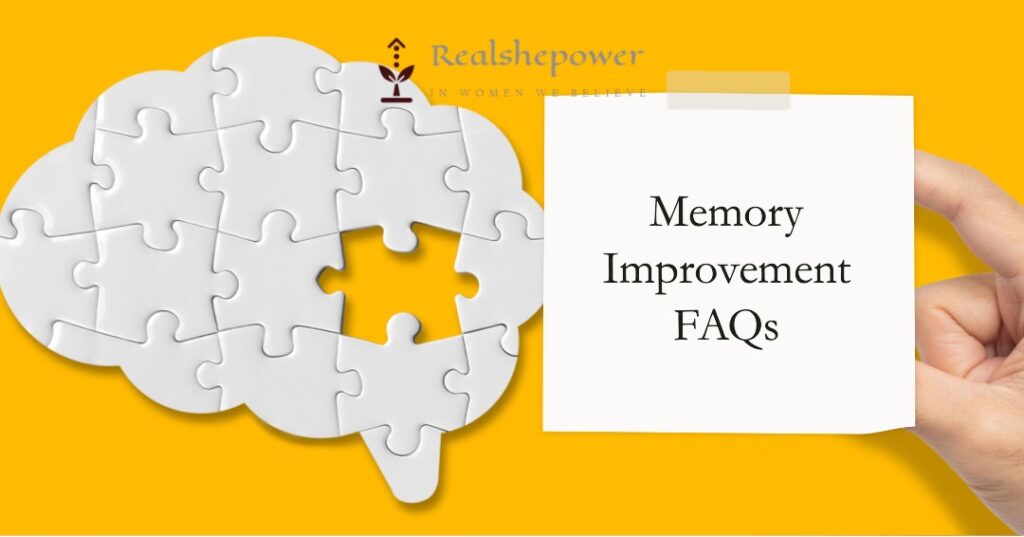
Q1: Are memory problems a normal part of aging?
A1: Mild memory lapses can occur as we age, but significant memory loss or cognitive decline may indicate underlying health issues. It’s important to consult a healthcare professional for an accurate diagnosis.
Q2: Can I improve my memory at any age?
A2: Absolutely! Our brains are highly adaptable, and memory improvement techniques can be beneficial at any age. It’s never too late to start optimizing your memory and cognitive abilities.
Q3: Can certain foods enhance memory?
A3: A healthy diet rich in brain-boosting nutrients, such as omega-3 fatty acids, antioxidants, and vitamins, can support optimal brain function. Foods like fish, blueberries, and leafy greens are known to be beneficial for memory.
Q4: Can stress affect memory?
A4: Yes, high levels of stress can negatively impact memory and cognitive function. Chronic stress releases hormones that can impair memory formation and retrieval. It’s important to manage stress through relaxation techniques, exercise, and self-care.
Q5: Can meditation and mindfulness benefit memory in older adults?
A5: Absolutely! Research suggests that regular meditation and mindfulness practice can improve memory and cognitive function, even in older adults. These practices promote brain health and enhance neural connections.
Remember, everyone’s memory is unique, and different techniques may work better for some individuals than others. It’s essential to find what strategies resonate with you and incorporate them into your daily life.
Conclusion: Unlock Your Brain’s Potential!
Your memory is a powerful tool waiting to be optimized. By implementing these memory improvement techniques and strategies into your daily routine, you can unlock the full potential of your brain and enhance your cognitive abilities. Embrace the power of association, engage your senses, and prioritize regular exercise to supercharge your memory and boost your overall brain power. Remember, improving your memory is within your grasp. So, seize the opportunity and embark on a journey towards a sharper, more efficient mind!
Now, armed with these techniques, it’s time to say goodbye to forgetfulness and embrace a life where you remember the important details effortlessly. So go ahead, start implementing these strategies today and watch your memory soar to new heights. How To Improve Memory? It’s easier than you think!
9 Simple Exercises To Improve Your Memory By 90%

Consider this: nowadays, a lot of individuals are obsessed with living a healthy lifestyle. They consume healthy foods, exercise at the gym, and all that jazz. They often overlook the fact that our brains require
6 Best Techniques for Effortless and Effective Learning!
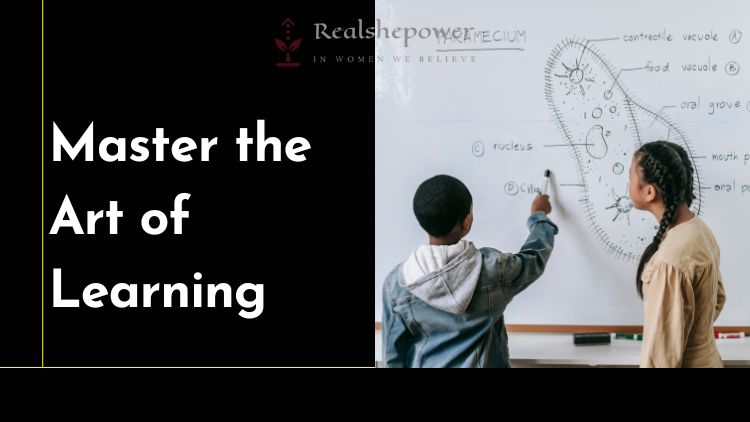
Learning is an essential part of our lives and a continuous process that goes beyond the confines of the classroom. The ability to learn quickly and retain information can have a significant impact on our
9 Proven Study Hacks for Successful Learning in 2023
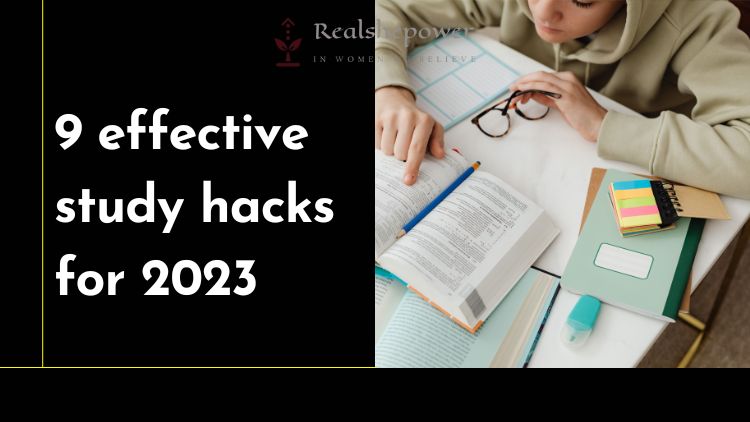
Studying can often feel overwhelming, especially as the pressure to perform well increases. However, with the right approach, studying can become more manageable and even enjoyable. In this article, we
You can now write for RSP Magazine and be a part of the community. Share your stories and opinions with us here.
